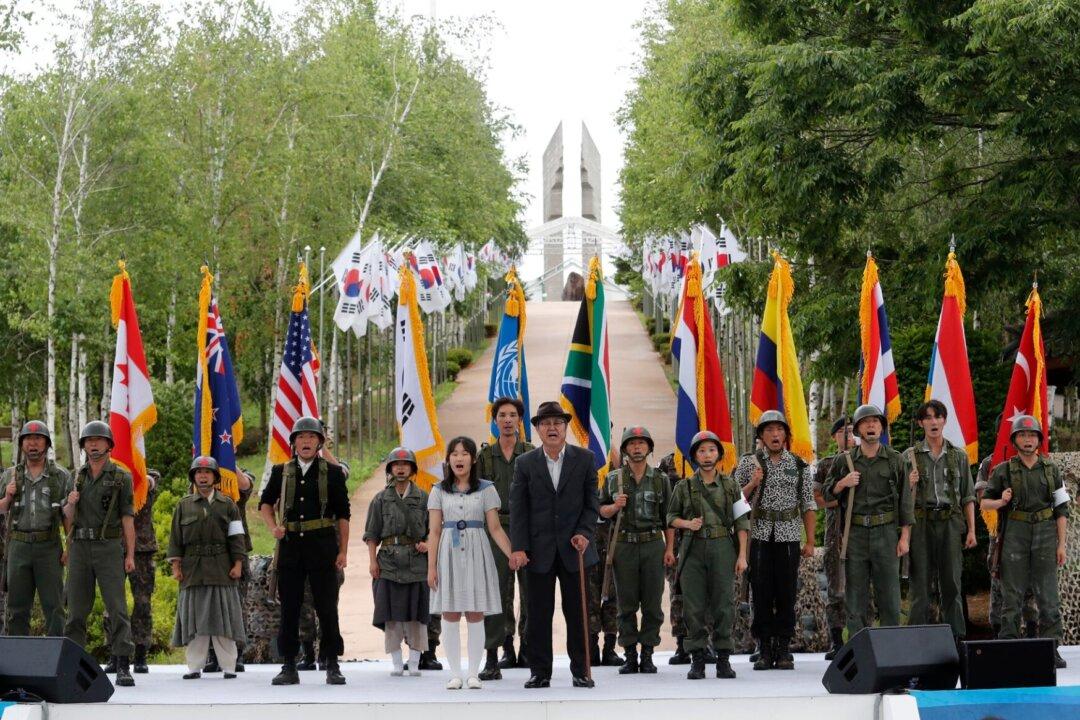SEOUL, South Korea—North and South Korea on June 25 marked the 70th anniversary of the start of the Korean War with largely subdued commemorations amid the CCP virus pandemic, a day after the North abruptly halted a pressure campaign against the South.
South Korea issued a joint statement with the United States, which fought alongside it during the 1950-53 war triggered by a surprise North Korean invasion. The United States still stations about 28,500 soldiers in South Korea in what North Korea views as a military threat.





